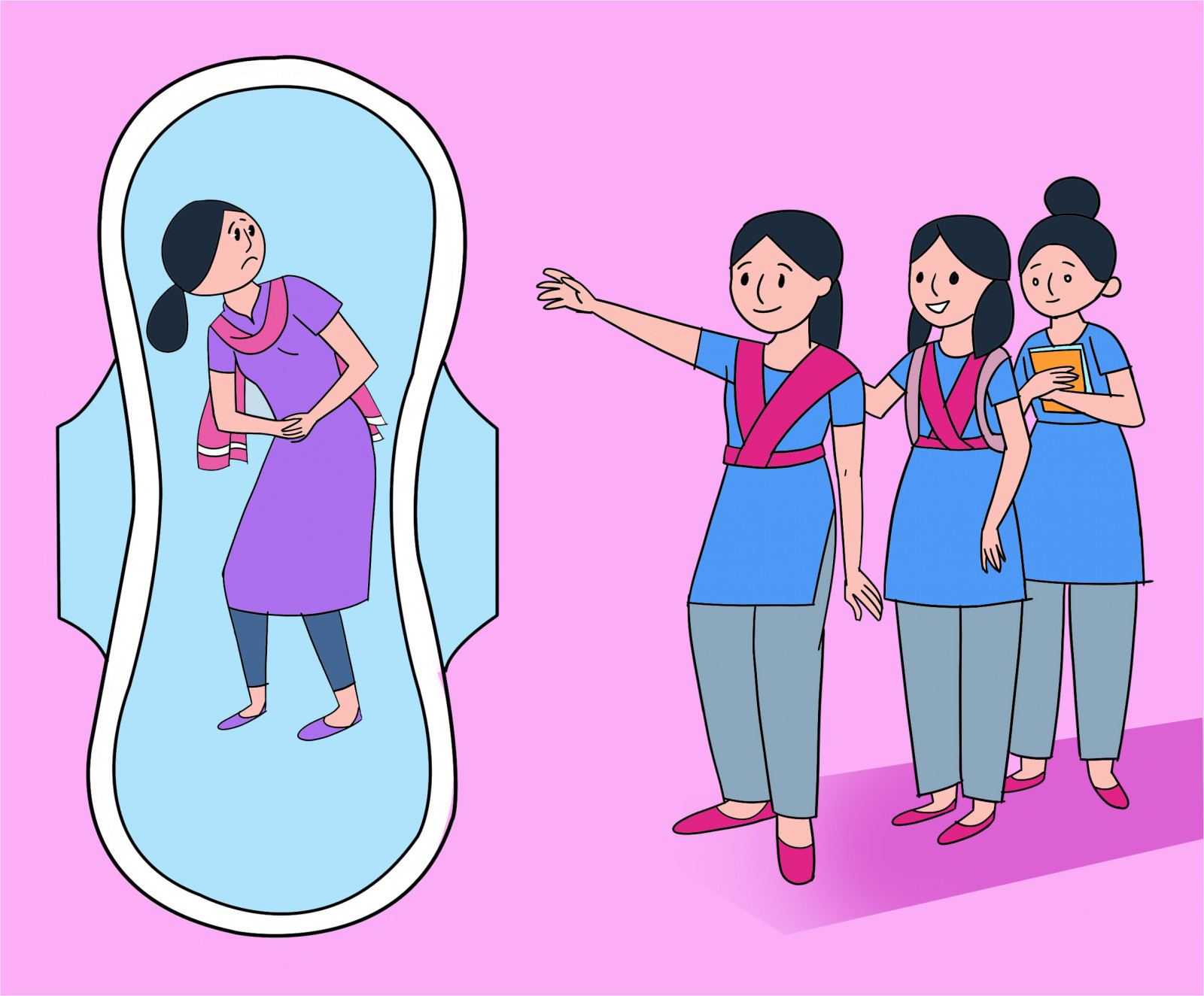Menstrual health: A taboo worth breaking
The Business Standard contacted a few such social change makers to learn what is being done about this issue

Eshita thought something was wrong with her when she experienced her first menstrual cycle. She did not know that this was a natural phenomenon. Her childhood fun and joy came to an abrupt end when she was only a sixth grader. Her mother kept her at home for the next seven days.
The following year, there was a chapter on menstruation and menstrual hygiene in her Home Economics book. But, her teacher never went through the chapter, and assured the girls that it was not important for the examination. Her mother also folded the pages of that chapter.
That was thirteen years ago when she was living in a divisional town. No one there was comfortable about discussing this natural process of womanhood.
Now she is a teacher at an English medium school in Dhaka city, and she observes with wonder that things have not changed much over time.
People still treat menstruation as taboo.
The World Bank's Wash Poverty Diagnostic research published in 2018 proved that Eshita's observation was true.
It showed that only six percent of schools in Bangladesh teach their students about menstrual hygiene.
An analysis presented in the 40th WEDC International Conference 2017 reveals that 72 percent schoolgirls don't go to school during menstruation. It badly affects their studies.
Evidently the process of empowering women is being impeded by period poverty.
Many organisations are trying to improve the situation by breaking the taboo around menstruation. They are trying to change existing social norms and practices that restrict girls from going out or eating nutritious food during menstruation.
The Business Standard contacted a few such social change makers to learn what is being done about this issue.
Marzia Prova, the project coordinator of 'Donate a pad for hygiene Bangladesh,' said she goes to remote rural areas with sanitary napkins to teach girls about the importance of menstrual hygiene, and to break the ice about the subject.
She said, "In most cases, people from low-income groups do not talk about menstruation in their families."
She thinks the situation can change if conversations and discussions about menstruation and menstrual hygiene become more frequent.
She also suggested that sanitary napkins should be made affordable for everyone.
Bidyanondo foundation has introduced a type of sanitary napkin named Bashonti for Tk5 that marginalised women can afford.
Atia Nur Chowdhury, director of project Konna of Bondhu Foundation, a NGO, thinks that the syllabus of the National Curriculum and Textbook Board (NCTB) is not enough to address social practices regarding periods.
"Though we prefer working in remote areas, the scenario in cities is not very good either. There are schools in Dhaka city where parents object to their children being taught anything about menstrual hygiene," said Atia.
Still, all their initiatives seem inadequate because a Unicef report published in 2018 shows that only 6.5 percent of girls are aware of menstruation.
Prof Ratan Siddique, former member of the NCTB, said, "Our society is still conservative. People may not accept the syllabus if we put everything there suddenly."
This is why they were taking one step at a time, he said. "We are trying to tackle the issue gradually. Hopefully, in the future, we will include details on menstrual hygiene," he added.
Doctors say that menstrual hygiene and reproductive health are interrelated, and poor menstrual hygiene can cause cervical cancer.
Nowadays, cervical cancer has been identified as the second most common cancer among women.
Dr Sabera, a gynecologic oncologist, said, "You do not get cervical cancer suddenly. Ignoring minor infections can result in the growth of cancer cells."
She pointed out the dangers of reusable napkins and said being unaware of menstrual hygiene may trigger infections.
The Department of Womens Affairs is currently providing underprivileged girls in rural areas with free sanitary napkins.
Quamrun Nahar, Deputy director of the department, acknowledged the reality, the taboo that surrounds menstruation.
She said they are working to stop period shamming as well and to do that they locally produced a low cost sanitary napkin that underprivileged women and girls can afford.
They named it 'Projapoti' and girls in rural areas are being introduced to this sanitary napkin according to their plan.



 Keep updated, follow The Business Standard's Google news channel
Keep updated, follow The Business Standard's Google news channel
















